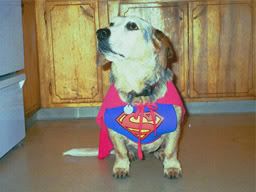
Writing vs. Story-telling
People have been telling stories to each other since they first developed language and learned to communicate. Telling stories pre-dates writing. Before we learned to build our own shelters and had to use what nature provided, we used stories to keep our history, to teach each other basic living skills, and to explain natural phenomena that affected our lives. We can still see remnants of those early stories in the oral histories of Native Americans. Alex Haley's ROOTS owes a lot to oral history passed down in the form of stories from one generation to the next.
Because we used to rely on our stories to tell us where we came from, our story-tellers were given high status. Before there were movies, or radio, or even books, we relied on our story-tellers to entertain and educate us. They were chosen as children and trained into adulthood by the current story-teller and there were often ceremonies to show that the new story-teller had completed his training and was ready to take up the responsibility of keeping history intact.
Part of the story-teller's job was to incorporate new events into the tapestry of stories that made up the oral history of a group of people. If an earthquake destroyed the cave and killed half the population, the story-teller had to decide how to tell that story. There were certain conventions to story-telling: familiar phrases used according to the situation and the story. Very often a story-teller would start out, "I tell you as it was told to me." This let us know that it was the original story, not a variation. Even today we still use, "Once upon a time," to start a story.
Then we developed spoken language, which naturally led to written language and alphabets. We had to apply rules based on convention because otherwise we wouldn't understand each other. Everything had to be consistent.
Scribes approached the story-tellers and asked for their stories. They wrote them down just as they heard them, word-for-word, so that the stories could be preserved forever. And thus began our written history.
With the development of standardized spelling and rules of grammar and punctuation, writing became a skill and art separate from story-telling. Stories were still told, but the tellers were now called writers and became known for their "style" and ability to "turn a phrase." It was no longer enough to say that the sun set in a blazing ball of glory. Our scribes needed to know how to spell "blazing" and to know that it set, not sets, and not to use any commas. Because we use different parts of our brains to absorb a story through written words than to absorb it through spoken language, the words had to form sentences that were easy to read and immediately created images in the mind of the reader.
Being able to use written language became important.
Screenplays are not meant to be read and enjoyed by the masses. Libraries don't have special sections reserved for screenplays, even the ones that have been nominated for, or won, Academy Awards. They are not meant to be literature.
A screenplay can best be described as a blueprint for a movie. It sets down events told visually, and in a certain order, and dialogue that illuminates the characters. There are award-winning screenwriters who do not use proper grammar or punctuation, and whose action lines read like a laundry list of shots. The language is sometimes awkward, but the meaning comes across.
Screenwriting has its roots in story-telling as it evolved around the community fire that kept the members of the cave alive. The dancing flames that illuminated the faces of the audience have been replaced by dancing images on a screen. The faces are still illuminated, but they no longer sit on logs and stones, and nowadays they eat popcorn instead of dried meat from the last hunt.
You don't have to be a great writer to be a great screenwriter, but you do have to be an exceptional story-teller. In earlier times the story-teller's words kept the members of his community close to the fire, where it was safe. While it may be safe nowadays not to watch movies, and we may be able to live our lives perfectly well without sitting down in the dark with popcorn and our own company, it still enriches us and teaches us and brings us together.
So remember your calling, and keep your community close to the fire.


6 Comments:
At 10:46 PM, Anonymous said…
Anonymous said…
Come closer...
At 8:59 AM, Mim said…
Mim said…
That's right! That was one of the phrases they used. Gather 'round or come closer, and hear my tale.
At 7:29 PM, Carl S said…
Carl S said…
There have been debates about screenwriting being an "art" or a "craft". I'd say it's both.
Great post, Mim. Makes me feel good to be sitting around the same campfire as someone like you.
At 6:10 AM, Mim said…
Mim said…
Carl, I'm honored that you would want to sit at my campfire.
At 4:27 PM, Anonymous said…
Anonymous said…
Ahhh. A SCRIBROSHPERE camp out. Everybody has to tell a story.
I love it.
Unk
At 10:44 AM, Mim said…
Mim said…
Thanks, Unk. Praise from you really feels good.
Post a Comment
<< Home